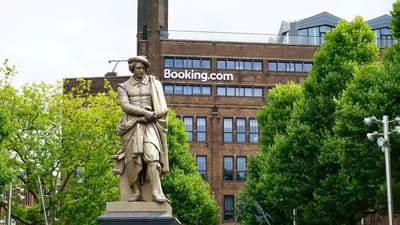Optimizing Your Booking Page for Search Engines: An SEO Guide
Optimizing your booking page for search engines is crucial for attracting potential customers and increasing your online visibility. This comprehensive SEO guide focuses on strategies specifically tailored for booking pages, helping you improve your search engine rankings and drive more organic traffic. We'll explore essential techniques such as keyword optimization, implementing schema markup, and structuring your content effectively. By following these proven methods, you'll enhance your booking page's visibility in search results, making it easier for potential clients to find and book your services. Whether you're running a hotel, restaurant, or any other business that relies on bookings, this guide will provide you with valuable insights to maximize your online presence and boost conversions.Table of Contents:
-
Understanding the Importance of Booking Page SEO
- Keyword Research and Optimization for Booking Pages
- Implementing Schema Markup for Enhanced Search Visibility
- Optimizing Page Structure and Content for Better User Experience
- Creating Compelling and Informative Content
- Leveraging Local SEO Strategies for Booking Pages
- Monitoring and Analyzing Your Booking Page's Performance
- Keyword Research and Optimization for Booking Pages
- Implementing Schema Markup for Enhanced Search Visibility
- Optimizing Page Structure and Content for Better User Experience
- Creating Compelling and Informative Content
- Leveraging Local SEO Strategies for Booking Pages
- Monitoring and Analyzing Your Booking Page's Performance

Understanding the Importance of Booking Page SEO
A well-optimized booking page is essential for any business that relies on online reservations. Search engine optimization (SEO) for booking pages goes beyond general website optimization, focusing on specific elements that can significantly impact your visibility and conversion rates. By implementing targeted SEO strategies, you can improve your page's ranking in search results, attract more qualified leads, and ultimately increase your bookings.Effective booking page SEO involves a combination of on-page optimization, technical improvements, and user experience enhancements. This includes carefully selecting and incorporating relevant keywords, optimizing your page structure, and providing valuable content that addresses your potential customers' needs and concerns. By mastering these techniques, you'll be better positioned to outrank your competitors and capture a larger share of the market.
Do you need a website? Want to build a website but don't know where to start? Our website builder is the perfect solution. Easy to use, and with the ability to customize to fit your business needs, you can have a professional website in no time.
Keyword Research and Optimization for Booking Pages
Keyword research is the foundation of any successful SEO strategy, and it's particularly crucial for booking pages. Start by identifying the primary keywords and phrases that potential customers might use when searching for your services. Consider location-based keywords, specific amenities, and unique selling points that set your business apart.Once you've compiled a list of relevant keywords, strategically incorporate them into your booking page's content, including the page title, headings, meta description, and body text. Be sure to use variations of your keywords naturally throughout the content to avoid keyword stuffing, which can negatively impact your search rankings. Additionally, consider creating separate landing pages for specific services or locations to target long-tail keywords more effectively and improve your chances of ranking for niche searches.
Implementing Schema Markup for Enhanced Search Visibility
Schema markup is a powerful tool for improving your booking page's visibility in search results. This structured data helps search engines better understand the content and purpose of your page, potentially leading to rich snippets and enhanced search listings. For booking pages, consider implementing schema markup for local businesses, events, or specific industries such as hotels or restaurants.By adding schema markup to your booking page, you can provide search engines with detailed information about your business, including operating hours, pricing, availability, and customer reviews. This additional context can make your search listing more attractive and informative, potentially increasing click-through rates and driving more qualified traffic to your booking page. Use Google's Structured Data Testing Tool to ensure your schema markup is correctly implemented and free of errors.
Building a website with SITE123 is easy
Optimizing Page Structure and Content for Better User Experience
A well-structured booking page not only improves user experience but also helps search engines understand and index your content more effectively. Start by creating a clear and logical hierarchy of headings (H1, H2, H3) to organize your content and highlight important information. Use your primary keyword in the H1 tag and incorporate secondary keywords in subheadings where appropriate.Ensure that your booking page loads quickly by optimizing images, minifying CSS and JavaScript, and leveraging browser caching. A fast-loading page not only improves user experience but also contributes to better search engine rankings. Additionally, make sure your booking page is mobile-friendly, as mobile optimization is a crucial ranking factor for search engines. Use responsive design techniques to ensure your page looks and functions well on all devices and screen sizes.
Creating Compelling and Informative Content
High-quality, informative content is essential for both user engagement and search engine optimization. Develop detailed descriptions of your services, amenities, and unique selling points to provide valuable information to potential customers. Include frequently asked questions (FAQs) to address common concerns and demonstrate your expertise in the industry.Consider incorporating user-generated content such as customer reviews and testimonials to build trust and credibility. This type of content not only helps potential customers make informed decisions but also provides fresh, relevant content for search engines to index. Regularly update your booking page with new information, special offers, or seasonal promotions to keep the content fresh and encourage return visits from both users and search engine crawlers.
Leveraging Local SEO Strategies for Booking Pages
For businesses with physical locations, local SEO is crucial for attracting nearby customers. Optimize your booking page for local search by including your business name, address, and phone number (NAP) consistently across your website and online directories. Create and optimize your Google My Business listing, ensuring all information is accurate and up-to-date.Incorporate location-based keywords naturally throughout your content, including in page titles, headings, and meta descriptions. Consider creating separate landing pages for different locations or service areas to target specific geographic keywords more effectively. Encourage customers to leave reviews on your Google My Business profile and other relevant platforms to improve your local search visibility and build trust with potential customers.
Monitoring and Analyzing Your Booking Page's Performance
Regularly monitoring and analyzing your booking page's performance is essential for identifying areas of improvement and measuring the success of your SEO efforts. Use tools like Google Analytics to track key metrics such as organic traffic, bounce rate, and conversion rate. Set up goal tracking to measure the number of successful bookings and identify any bottlenecks in the booking process.Utilize Google Search Console to monitor your page's search performance, including impressions, click-through rates, and average position for specific keywords. This information can help you identify opportunities to optimize your content further and target new keywords. Regularly review your competitors' booking pages to stay informed about industry trends and identify potential areas for differentiation. By continuously monitoring and refining your SEO strategy, you can ensure your booking page remains competitive and effective in driving conversions.





